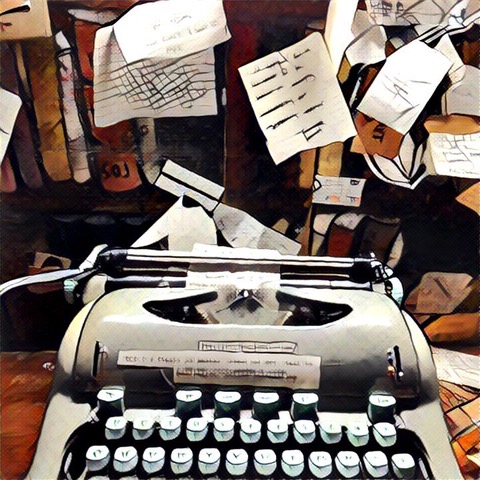7 Ways to Help You Be Precise in Your Writing
Today’s guest post is by Dawn Field:
The best books suck you into an alternative world in a single sentence. Ideally, it happens in the opening sentence. Some take a paragraph—others longer. If it takes too long, few will chose to read a book unless they’ve already cultivated a love for the author or the topic, or someone promised it was a terrific read.
The best books create worlds you can feel and understand even though they are imaginary or, if based on true stories, you only experience vicariously. A great read gets comments such as “I could so relate to that character,” “I never knew the life of a Buddhist monk was like that,” “I could just feel his pain when he broke his leg,” “I could see the jungle temple in my mind,” and “I could feel the cold in the winter survival scene—I almost started to shiver as he was trying to start the fire in the snow.”
The art of pulling a reader in is not due to being a master of words—although this helps tremendously—as much as being a master of the human experience and human psychology, and understanding the key features that define the essence of any experience. It is also a matter of achieving precision in descriptions.
What can you do to ensure you have the best possible chance to pull your readers into your world? How do you make them not only suspend disbelief but ache to stay there until you kick them out on the last page? What makes them hope you write a sequel?
These seven things will certainly help. Great writing has them all.
1. Stereotype
We are all told that stereotyping is bad. The reason stereotyping can be so hurtful is that it presumes a core set of traits are shared by all. But recognizing core traits is essential to compact, meaningful writing and is an inherent skill of great writers. It’s the most expedient way to describe things in a way readers are mostly likely to understand. What this really represents is the art of being able to most vividly describe anything with the minimum of words because you’ve cleverly picked the best ones to do so.
Why are witches green-skinned, black-clothed and warty, and why do they cackle? They just are—for historical reasons, not true reasons. As soon as you use these words in close association, everyone who shares this cultural reference will start to think about witchery in the fairy tale sense. You’ve used the best words to convey a certain idea. In this case, using the word laugh cannot replace cackle. Not much other than a raven or a witch cackles. Using this word in describing a female character will surely paint a dark picture of her without you having to say much more.
In reality, “tried and true” descriptions are often more stereotype than truth. Agatha Christie was noted for using stereotypical characters, but this helped her mysteries work. The naive girl, the clergyman, the industrialist, the Romeo, the aristocrat—readers could fill in many details from the stereotypes she worked with, and that freed her up to focus on the mystery.
You are free to make anything as unique as you like, and it is great to steer clear of stereotypes. Still, you must figure out how to describe in vivid detail things that are brand-new to readers, and the best way is always to focus on finding the core features.
2. Show, Don’t Tell
This is the number-one mantra for fiction writers. Show, don’t tell—and let the reader figure it out. Readers like evidence, not statements. They want to build their own picture. You can say that a woman in your book is old, or you can describe her character as having gray hair, wrinkled skin, and a raspy, quiet voice that sounds otherworldly.
This is especially true of character traits. Instead of saying a male character is vain, have him routinely stop and preen at mirrors, comb his hair, spray on a new layer of cologne between meetings, and think all the women in the room are looking at him. This is very much related to the concept of stereotypes, since the ways you show will likely come from a palette of stereotypic behaviors that are well known to readers.
3. Beyond Words
We have five senses with which to perceive the physical world, and authors should remember to feed them regularly. Sensory details are highly evocative and help make readers feel inside your book. Our five senses are sight, hearing, taste, touch, and smell. We also have kinesthetic feelings of movement and what is around us.
How often do you add details specific to one or more of these? The pear tasted sweet but slightly off. The wind was cool on my cheek. When I fell toward her the smell of alcohol on her breath was overpowering. My head filled with blood when the horse flipped me upside down. These are all details that are directed at connecting the senses to the story world.
It is a bit formulaic but can be helpful, especially to new writers, to try adding one or more sensory details to each page (or even each paragraph, depending on the context). The path toward building a complete sensory experience for readers is easy to see once viewed explicitly like this. Sometimes this is the only spice that otherwise great writing lacks.
4. 4D Detail
We often accept lies when they are quite detailed. Our brains tell us a lie must be true exactly because it is so detailed. This is the same for writing. Detail happens in all three dimensions and time. Building up a 4D feel of the world of your book is something you work on from the first sentence to the last. The more detail, without overdoing it, the more believable it will be to a reader.
Details help the reader see the world, characters, and actions in their mind’s eye, which is exactly what you want to happen. Writing without sufficient detail to trigger internalization is flat.
5. Skip the Red Herrings
Readers will fill in details that are not explicitly given by an author just because this is human nature. Just as we can read words in print even when big chunks of the letters are missing, we fill in empirical details as we read. We read between, under, and over the lines.
When this great skill of the human mind works in your favor, your story grows in emotional power. When a well-meaning reader goes off in the wrong direction because of spurious red-herring clues you didn’t mean to leave, they often get lost in a dark, gloomy dead end in the heart of the woods.
6. Power of Words
Writing is all about words, but many fail to fully appreciate the power of even a single word put in a strategic place. Words are like colors, scents, or feelings. They can evoke strong reactions. Moreover, people are highly suggestible. You can use charged words as small emotional bombs. The human brain will be suitably impacted even when only at a subconscious level.
If you want a scene to shift from happy to dark, start dropping in dark words. Or happy ones, to reverse the trend. This is especially useful when you want to foreshadow an event. You dot the page with words that are subliminal hints until you pull away the curtain and reveal the next plot development.
7. Being an Authority
It especially helps if you were there. Authority in writing is an exceptional advantage. If you are a survival expert and you’ve made countless fires in snow under blizzard conditions, you’ll be in a better position to try to convey those challenges to readers. If you aren’t, you’ll really have to tax your imagination and knowledge and do some good research. Both ways are possible; it just takes some serious work.
Understanding what you are writing about is the foundation of great writing. Being an authority is perhaps the most powerful way to pull people in because you will more naturally do all the things in this list.
Precision-Engineering
Watches, cars, or any kind of complex working system must be precision-engineered to work at their best. Buildings precision-engineered of stone last into perpetuity. Writing is similar. Giving readers sensory and intellectual detail enough to draw them in and keep them in the world of your story is the foundation of great writing.
 Dr. Dawn Field is a book lover interested in what makes great writing. After a twenty-ear career as a research scientist, her first book, Biocode: The New Age of Genomics, was published by Oxford University Press. Now a columnist for The Double Helix, Dr. Field is exploring new writing venues and writing a second book. Based in Virginia, Dr. Field is looking to collaborate with a range of fiction writers as a writing coach, editor, and consultant on the publishing process.
Dr. Dawn Field is a book lover interested in what makes great writing. After a twenty-ear career as a research scientist, her first book, Biocode: The New Age of Genomics, was published by Oxford University Press. Now a columnist for The Double Helix, Dr. Field is exploring new writing venues and writing a second book. Based in Virginia, Dr. Field is looking to collaborate with a range of fiction writers as a writing coach, editor, and consultant on the publishing process.
Feature Photo Credit: Whistling in the Dark via Compfight cc












Great pointers! I smile when I read this article because as a writer I am aware of a lot of the things that are considered no-no while writing. I know about punctuation. I know about show, not tell. However, as a reader, very seldom do I find myself thinking “Oh, my God! This author didn’t show anything, all they did was tell, tell, tell.”
Yes, sometimes, I do find my internal editor hard to turn off, and I catch simple things like a missed word or an extra word in a sentence. I promise you that if I am in love with the storyline, if I’m invested in seeing the book to the end, I couldn’t care less if the author used a cliche, or if the told something they could have shown. I don’t even necessarily care if it isn’t edited to 100%, if I enjoy the story.
There are 4000 ebooks (or something like that) published per DAY on Amazon right now. I think the hardest part for the author is getting the book noticed by the right people and getting some good reviews posted.
I read “After” by Anna Todd. Was it well written? In my opinion, not particularly. However, to me, it was compelling enough for me to keep reading. It was like a bad accident, I couldn’t stop, even though I didn’t think it was particularly good writing. And she did okay (more than okay, really). Ultimately, I loved the book in spite of the questionable writing and numerous so-called golden rules that were broken.
I could go on and on about the rules as they apply to getting published, but I won’t. Sometimes, I think authors are so afraid they’re going to break a rule that they lose their voice in the process. I say… write it as you hear it. Put pen to paper and don’t let anyone (editor or otherwise) tell you you can’t do that!
That being said, people who have read my books, don’t always appreciate my way. 🙂
Thanks! This article was more about bringing out the creative juices to make the story sing out and be ‘felt’ by readers. Yes, great story trumps everything. No one should be hindered by rules, only use them when they help make the words sing out more clearly.
This is such an excellent list of considerations to bear in mind. In particular, I liked point 6, which had me thinking that word choices aren’t just important because of the label they represent, i.e. the images they conjure the reader’s ‘mind’s eye’, but they also have a weight of their own: their onomatopoeic quality, their rhythm, pace, length, and colour. When words are woven into walls, they can create a synesthetic quality that lies beyond the ‘label’.
At least, that’s my interpretation ha ha.
Thank you for an excellent article!
Adrian
Wonderful advice here, Dawn. Thank you so much. I’ve shared it generously.
Thank you for the great post!
Sometimes there are problems with formulating precisely feelings, events for readers to understand in the right way.
Especially, when there so much to say!
I will save some tips from your article!